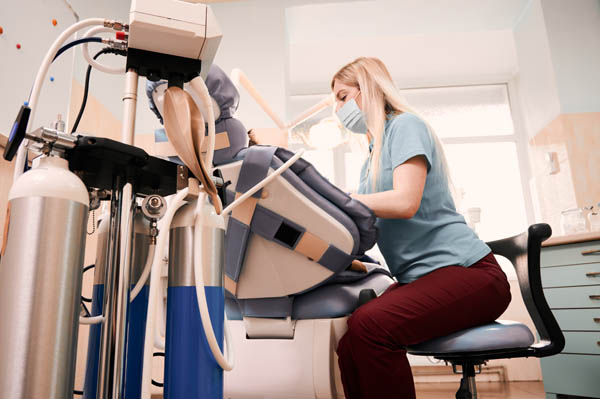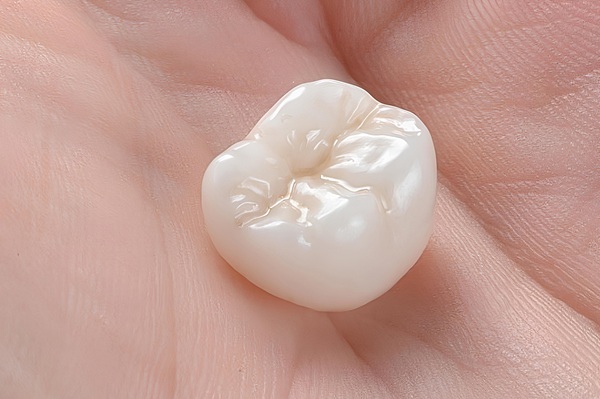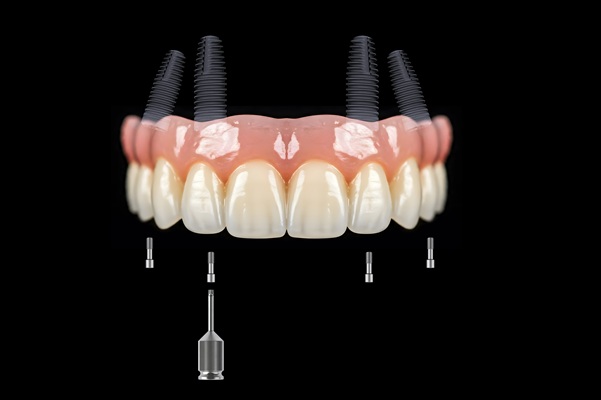Who is a Candidate for Sedation Dentistry?

Sedation dentistry helps individuals to overcome the fear of dentists. Dental anxiety affects many people and it often prevents them from getting treatments they need when problems develop in their mouths. However, most dental problems do not go away on their own. Treatment is needed to prevent the issue from getting worse, which can result in a lot of pain, money and time. Thankfully, sedation dentistry is a good solution. Individuals that do fear the dentist can undergo their procedure in a sedation dentistry setting to help offset these feelings, thus allowing for the appropriate oral health care.
How sedation dentistry helps with dental anxiety
The sedatives used in sedation dentistry help patients to feel relaxed and less anxious. The goal is to make the patient's experience as comfortable as possible so they no longer see going to the dentist as a scary thing that should be avoided.
People who do not have dental anxiety can also benefit from sedation dentistry if they struggle with back/neck pain during treatments or if they need to have excessive dental work done. Dental sedatives can reduce the number of trips a patient needs to make to the dentist since they can sit comfortably in a dentist's chair for longer. Dental sedatives can be used for most treatments ranging from the least invasive procedures like teeth whitening to surgical treatments like the installation of dental implants. Dental sedatives are commonly used to address issues like:
- Sore jaw muscles
- Dental phobias
- Low pain tolerance
- Overactive gag reflexes
- Patients who are unresponsive to local anesthetics
- Traumatic past experiences with a dentist
- Inability to stay still for prolonged periods
Type of sedatives used in dentistry
Dentists evaluate their patients before determining whether or not sedation dentistry is right for them. Factors that will be considered during the evaluation include: the patient's medical history, medications the patient is currently taking and their level of anxiety.
Based on their findings, the dentist might recommend sedation dentistry practices such as:
- Oral sedatives: A dentist might prescribe an oral sedative that the patient takes prior to their appointment. This helps to reduce their anxiety or fears about going to the dentist. Such medication impairs a person's ability to drive so transportation to and from the clinic should be arranged.
- Inhaled sedatives: Nitrous oxide is commonly used to keep patients relaxed during treatments. Also known as laughing gas, it is delivered with a facemask that is placed on the patient's jaw. It takes effects within minutes and it wears off just as fast.
- IV sedation: Medication that helps to keep patients relaxed can also be delivered intravenously. This type of sedation is typically reserved for patients who need a higher level of sedation. The dentist can adjust the quantity of medication being injected into the patient's veins as needed.
Give dental sedatives a try
Sedation dentistry can make dental appointments and procedures easier. Call or visit our Tucson clinic to set up an appointment with our dentist.
Request an appointment here: https://www.tucsonazdentistry.com or call Advanced Family Dentistry at (520) 353-3002 for an appointment in our Tucson office.
Check out what others are saying about our dental services on Yelp: Sedation Dentist in Tucson, AZ.
Recent Posts
Lions, tigers, dentists, oh my! If you’re dreading your next trip to the dentist’s office, you’re not alone. Dentophobia (fear of dentists) is a prevalent problem among people of all ages. Some dentists offer sedation dentistry to ease anxiety and worry while patients are in their chairs to combat this issue. Sedation dentist Dr. Payam…
Are you deciding on getting an oral procedure done at the dentist but have a substantial amount of anxiety about what may occur? If this sounds like you, you may want to talk to your dentist about dental sedation. Dental sedation can make the process of going to the dentist’s office comfortable and anxiety-free.Essentially, dental…
Want to know exactly what having dental anxiety means? This term is used to describe any apprehension someone has when in a dental setting, which can happen before, during and even after going to a dental office. According to the American Dental Association, whatever your reason, the right dental team will make sure your dental…
Same day crown technology has made it possible for patients to get a crown over a tooth on the same day as their dental appointment. Crowns, commonly known as "caps," can treat a broad range of dental problems. They are used to treat decayed parts of teeth, replace a missing tooth as part of a…


